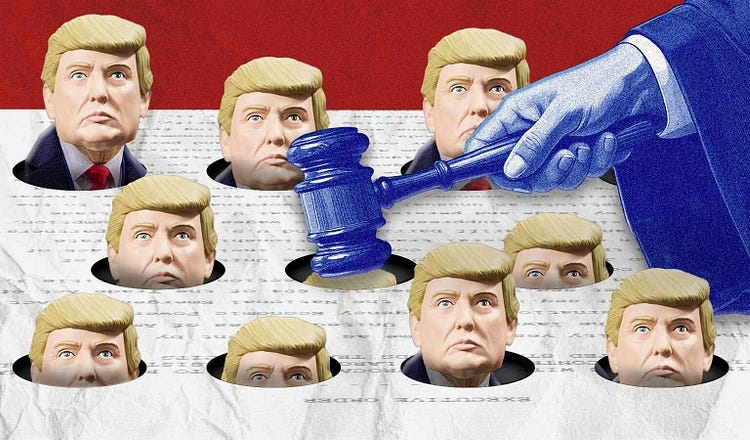
It’s been a relatively good week for President Donald Trump when it comes to the Supreme Court. The Court ruled more or less in his favor on three different challenges, including upholding on jurisdictional grounds his deportations of migrants to El Salvador. But the most pressing legal issue for Trump—the “nationwide injunctions” that have hamstrung many administration priorities—remains unresolved.
According to one count, only some 27 “nationwide injunctions”—orders issued by judges that block government policies from taking effect anywhere in the country—were issued throughout the twentieth century. Yet against Trump, counting both administrations, judges have so far handed down at least 79.
Supporters of these injunctions claim that they are a necessary check on unconstitutional actions by the administration, such as Trump’s moves to end birthright citizenship. The White House and its Republican allies on Capitol Hill say that district court judges are subverting the will of the people and want the Supreme Court to limit or halt the issuance of these injunctions.
Who is right? Let’s take it one step at a time. What are nationwide injunctions? Are they really being used against Trump more than other presidents? And are they legal?

